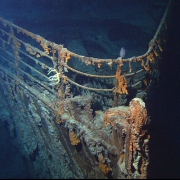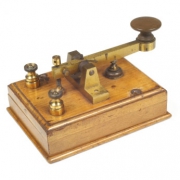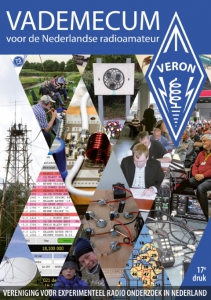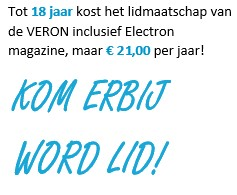Africa All Mode International DX Contest 2024
 Vanuit een warm Zuid-Afrika krijgen we informatie over de Africa All Mode DX Contest. Deze staat gepland voor 16 en 17 maart 2024, dus aanstaand weekend! Het zal plaatsvinden op 160 tot en met 10 meter met gebruik van CW, SSB en RTTY. Dus doe mee!
Vanuit een warm Zuid-Afrika krijgen we informatie over de Africa All Mode DX Contest. Deze staat gepland voor 16 en 17 maart 2024, dus aanstaand weekend! Het zal plaatsvinden op 160 tot en met 10 meter met gebruik van CW, SSB en RTTY. Dus doe mee!
Helemaal beneden deze pagina staat ook informatie over de All-Africa Award. Zie dat niet over het hoofd!
Vanwege het internationale karakter van deze contest geven we de reglementen in het Engels weer.
The Africa All Mode International DX Contest
1. Aim
The objective of this all-mode contest is to stimulate contesting from Africa. All participating stations worldwide may work any country during the contest period. African DXCC entities are defined as those valid per the ARRL DXCC AF listing published at the time of the contest.
2. Date
12:00 UTC on Saturday 16 March 2024 to 12:00 UTC on Sunday 17 March 2024. Both single and multi-operator stations may operate for the entire 24-hour period. There are no mandated breaks in operating time required.
3. Bands
160, 80, 40, 20, 15 and 10 metres, in accordance with your country and specific licensing requirements governing the portion(s) of these bands that you may use. No contest QSOs are allowed on 12, 17, 30, 60, 630 or 2 200 metres.
4. Modes
CW, RTTY and SSB. Contestants may elect to enter a single mode category (where offered – see “Entry Categories” below) or take part as a mixed-mode entrant. Mixed-mode entrants may work the same station once on each mode per band (see “Entry Categories” for more details).
5. Log Submissions and Deadlines
No paper entries will be accepted for contest or checking purposes. Entries must be submitted in Cabrillo format only and be received no later than 15 days after the contest – Monday 1 April 2024. Entries must be sent to contest@sarl.org.za
6. Awards
Certificates in PDF format will be sent to:
- The highest scoring entrant in each category for the contest
- The highest scoring entrant in each category per continent
- The highest scoring entrant overall (any category) per CQ zone
- The overall top Rookie score each year per continent.
- The first and second place entrants in each category from each entity entered.
7. Results
Results will be posted on the South African Radio League website at www.sarl.org.za two months after the entry deadline.
8. Entry Categories
For all categories, the use of spotting nets and skimmers are permitted. For all categories,there are no restrictions on the number of band or mode changes made in any given period during the contest. Contestants may only submit their log in one of the 18 categories available.
A Single Operator Single Transmitter
A.1 Single band
A.1.1 Phone only, high, low and QRP power levels
A.1.2 CW only, high low and QRP power levels
A.1.3 RTTY only, high low and QRP power levels
A.1.4 Mixed mode, high low and QRP power levels
A.2 All band
A.2.1 Phone only, high, low and QRP power levels
A.2.2 CW only, high low and QRP power levels
A.2.3 RTTY only, high low and QRP power levels
A.2.4 Mixed mode, high low and QRP power levels
One person performs all operating and logging functions and without exception, only one transmitted signal is allowed at any given time. Mixed mode entrants may work a station once per mode per band.
B. Single Operator Two Radio
 B.1 Single mode all band, low power
B.1 Single mode all band, low power
B.2 Single mode all band, high power
B.3 Mixed mode all band, high power
B.4 Mixed mode all band, low power
C. Multi Operator Single Transmitter
C.1 Single band
C.1.1 Mixed mode high power
C.1.2 Mixed mode low power
C.2 All band
C.2.1 Mixed mode high power
C.2.2 Mixed mode low power
D. Multi Operator Multi Transmitter
D.1 Mixed mode all band, high power
D.2 Mixed mode all band, low power
All Multi-op efforts must enter the mixed mode category. There is no multi-op or SO2R QRP power level. Stations may be worked once per mode per band. In all categories, cross-mode, cross band and repeater contacts is not allowed.
9. Categories Eligible for Rookie Awards
The rookie awards in the AMA contest aim to reward individual rather than team efforts, which show flexibility and skill in operating procedure for recently licensed amateurs. They are available for the categories of A.1.4 and 1.2.4. You are eligible to mark your log submission as a rookie entry if you were licensed for the first time on, or less than two years prior to, the contest date. If you enter one of the rookie categories, you may not enter a different category in the same contest. It is not mandatory to enter as a rookie if you qualify as such, you may also elect to enter any of the non-rookie categories.
10. Contest Exchange
10.1 The exchange is your RS(T) (not checked during the log checking process), followed by an incremental serial number commencing at “001.” Changing modes or bands does not necessitate different serial number ranges, i.e., the serial number simply progresses from “001” upwards sequentially as you log QSOs in any category, for single or multi-op efforts. A complete exchange, consisting of an RS(T) and serial number, must be logged for each QSO.
10.2 Each QSO claimed for competition credit must include contemporaneous direct initiation by the operator on both sides of the contact. Initiation of a contact may be locally or by remote. Contemporaneous = existing at or occurring in the same period of time and the operator must be in control of all the processes. In plain English – a live, air breathing radio amateur must be at both ends of the QSO.
11. Power Levels
11.1 For the purposes of this contest, all entrants must adhere to the power levels (ex- pressed as Peak Envelope Power, or PEP) as set out below when determining their entry category. Additionally, all entrants must adhere to their specific licensing requirements regarding permitted power and other regulations, which take precedent over the contest-defined power levels when operating in the contest.
11.2 QRP is defined as 5 watts PEP or less as measured at the antenna port at the transmitter, or power amplifier (if used).
11.3 Low power is defined as more than 5 watts PEP but not more than 100 watts PEP measured at the antenna port either at the transmitter, or power amplifier (if used).
11.4 High power is defined as more than 100 watts PEP but not more than 1 500 watts PEP measured at the antenna port either at the transmitter, or power amplifier (if used).
12. Points, multipliers and scoring
12.1 Points. All QSOs are awarded 1 point.
12.2 Multiplier. The multiplier increments by one for every AF-DXCC entity worked, for each of the three operating modes: CW, SSB and RTTY on any of the six operating bands: 160, 80, 40, 20, 15 and 10 m.
12.3 Total score. The final score is the result of the total QSO points multiplied by the sum multipliers. Example 100 QSO points X 25 multipliers = 2 500 (final score)
13. AF Entity Definition
13.1 For the purposes of this contest, Africa entities are considered as per the standard ARRL DXCC AF list as published at the time/year of the contest currently taking place.
13.2 Ship-based and aeronautical stations only count 1 point when worked and do not count as multipliers regardless of them being in international or territorial waters during the contest period.
14. Cabrillo Information
QSO: Required information fields and format.
info sent info rcvd
QSO: freq mo date time call rst exch call rst exch t QSO:
***** ** yyyy-mm-dd nnnn ************* nnn ****** ************* nnn ****** n QSO: 28080 RY 2014-09-12 0531 ZS6A 59 001 W1AW/5 59 073 0
000000000111111111122222222223333333333444444444455555555556666666666777777777788
123456789012345678901234567890123456789012345678901234567890123456789012345678901
Note for Column 81 (transmitter number): For the MULTI-TWO category, the last column in the log indicates which transmitter made the QSO. It must be a 0 or a 1. This column is not required for other categories.
15. General
15.1 Conditions of Entry: Each entrant agrees to be bound by the provisions set out in this document. The decisions of the South African Radio League Contest Committee are final and binding.
15.2 The use of self-spotting on packet via any means is not permitted. t.
15.3 The use of non-amateur radio means of communications (e.g. telephone or internet) for soliciting a contact during the contest period is not permitted.
15.4 Where contest-preferred segments are incorporated into regional band plans, entrants must observe them.
15.5 Penalties and disqualifications: participants breaching the provisions as set out in this document may be subject to a point deduction as decided by the contest committee, or in serious cases disqualification.
15.6 Duplicate QSOs will not attract any penalties but will also not count for additional points.
15.7 All transmitters and receivers must be located within a 500-metre diameter circle, excluding antennas.
15.8 The use of remote receiving or transmitting installations outside of your own entity is prohibited.
15.9 All enquiries by e-mail to contest@sarl.org.za
The All-Africa Award
The All-Africa Award is sponsored by the South African Radio League. Its aim is to encourage more QSOs with African countries. Applicants must prove having made contact with the following 31 areas:
- One contact with a station in each of the six call areas of South Africa (ZS1 to ZS6).
- One contact in each of 25 African countries outside South Africa.
Only contacts with stations on the African continent are valid. Islands and ship-based stations do not count. “Country”” means an entity included in the DXCC entities list maintained by the ARRL. Deleted countries also count, provided that contacts were made while the country existed. ZS3 stations in South West Africa (before 1990) count as Namibia.
Applications
Application must be made in writing. Endorsements for a single mode or a single band can be requested. A list of confirmations must be included. The list must be certified by an official of a local radio club or two licenced radio amateurs, who have seen the confirmations. The list must contain at least the following information:
- UTC date of the contact
- Callsign of the station
- Transmission mode
- Frequency band
- Name of the country
- Type of confirmation, if not a paper QSL card
Valid confirmations are either paper QSL cards confirming all the details listed above or LoTW confirmations personally seen on-screen by the person signing the certification. If any LoTW confirmations are included, the certification can only be signed by registered LoTW user. A mixture of paper and electronic confirmations may be used in a single application.
Include US$10 or €10 to cover handling charges, PayPal facilities are available zs1j@iafrica.com. The award is free to members of the South African Radio League.
Applications should be addressed to: T Lammers, Palm Brook G03, Oasis Retirement Resort, Oasis Lane, Century City, 7441, South Africa. Enquiries and electronic submissions can be made to zs1j@iafrica.com.
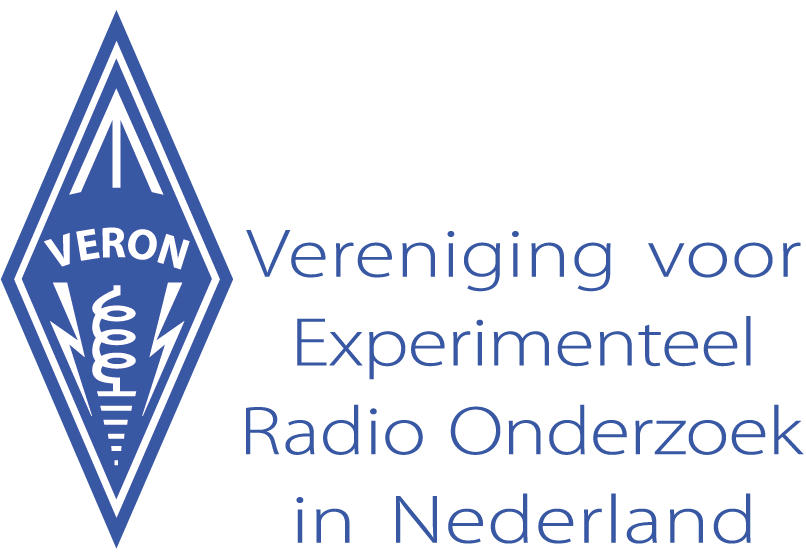
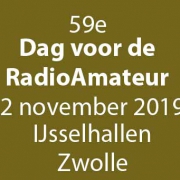
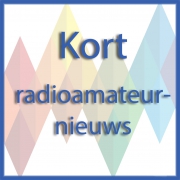 VERON
VERON
